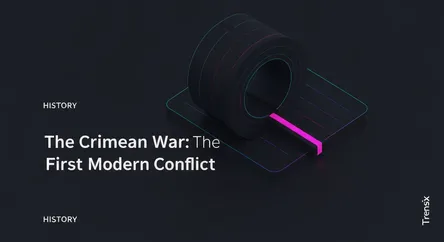History
The Crimean War: The First Modern Conflict

An overview of the 1853-1856 conflict that pitted Russia against an alliance and heralded a new era of modern warfare and military medicine.
What is it?
The Crimean War (1853-1856) was a major conflict fought primarily on the Crimean Peninsula between the Russian Empire and an alliance of the Ottoman Empire, Britain, France, and Sardinia. The immediate trigger was a dispute over the protection of Christians in the Holy Land. However, the war's deeper causes were geopolitical, including the decline of the Ottoman Empire, Russia's expansionist ambitions, and the desire of Britain and France to maintain the European balance of power. The allies sought to halt Russian advances and protect their interests in the Near East.
Why is it trending?
The Crimean War is considered historically significant as one of the first "modern" wars. It was among the first conflicts to use new technologies like railways and the telegraph, which allowed for near-real-time reporting from the front lines for the first time. The fighting also foreshadowed World War I with its use of trench warfare during the lengthy Siege of Sevastopol. Its geopolitical ramifications, particularly concerning control of the Crimea and the Black Sea, continue to echo in contemporary international relations, making it a subject of ongoing historical interest.
How does it affect people?
The war had a profound and lasting impact. Russia's humiliating defeat exposed its military and social weaknesses, acting as a catalyst for major internal changes, including the emancipation of the serfs in 1861. The conflict was devastating, with disease claiming far more lives than combat. This led to revolutionary changes in military medicine and the professionalization of nursing, spearheaded by the famous efforts of Florence Nightingale. The war also transformed public perception of conflict, establishing war journalism as a powerful force in shaping opinion at home.